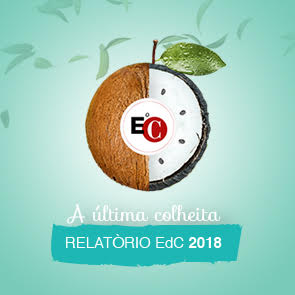by Amelia J.Uelmen
Caritas in veritate and Chiara Lubich: Human Development from the vantage point of Unity
published on Theological Studies, volume 71, pages 29-45 (03-2010) Within the vibrant life of the Catholic Church today, many currents of spirituality and specific projects can shed light on the encyclical’s themes and provide examples of what its principles might look like in practice. This note focuses on how Chiara Lubich’s spirituality of unity might offer a helpful way for people to understand how to live these principles in their everyday lives. It also discusses how the “Economy of Communion” and other concrete projects and practices of Focolare, the movement Lubich founded, foster economic justice and human development.
Within the vibrant life of the Catholic Church today, many currents of spirituality and specific projects can shed light on the encyclical’s themes and provide examples of what its principles might look like in practice. This note focuses on how Chiara Lubich’s spirituality of unity might offer a helpful way for people to understand how to live these principles in their everyday lives. It also discusses how the “Economy of Communion” and other concrete projects and practices of Focolare, the movement Lubich founded, foster economic justice and human development.
At a certain point in his marvelous and still timely essay on love,Josef Pieper struggled with whether the idea of universal love might make any practical difference in the world.
He wrote: On the one hand, universal human love cannot accomplish anything practical in the world; man’s historical predicaments cannot be solved by love. But on the other hand . . . universal love is not simply an unrealistic fantasy.
Caritas in veritate and Chiara Lubich: Human Development from the vantage point of Unity
Rather it is an innate potentiality reminiscent, as it were, of paradise, which is revealed for a moment solely in the exceptional figures of great lovers [such as Francis of Assisi].1
One might trace a similar skepticism in some of the initial commentary on Caritas in veritate. For example, for George Weigel it was not immediately clear how poverty might be defeated through “increasing openness, in a world context, to forms of economic activity marked by quotas of gratuitousness and communion” (no. 39).
He mused, “This may mean something interesting; it may mean something naı¨ve or dumb. But, on its face, it is virtually impossible to know what it means.”2
Why might it be challenging for pragmatic North Americans to wrap their heads around aspects of the analysis in Caritas? It might be at least in part because we often approach the question of development from the direction of asking: “What should we do? What strategies might help?”
But Caritas approaches the problems that plague humanity today from a different angle: “The Church does not have technical solutions to offer. . . .
She does, however, have a mission of truth to accomplish, in every time and circumstance, for a society that is attuned to man, to his dignity, to his vocation” (no. 9).
The dynamic tension brings to mind the account in John’s Gospel where Jesus offers the Samaritan woman “living water” (Jn 4:10). She does not “get it” on the first try. Instead she focuses on the practical problem at hand—Jesus does not have a bucket: “You have nothing to draw with and the well is deep” (Jn 4:11).
It was only when Jesus had told her the truth about her own life that she was able to enter into this different and deeper dimension. The analysis in Caritas reflects a conviction that only if we answer the fundamental questions about our human vocation—only if we face the truth about ourselves—can we then begin to work through the questions of what we should do to foster integral human development.
How might we move beyond the “bucket” level in order to discern the ways Caritas might be offering “living water” for the world today? According to Peter Steinfels, one reason why the encyclical was “a tough read” is that it “tried to do too much,” proving that it was an impossible feat to weave into a comprehensive analysis such a wide variety of topics.
Further, as part of “a genre wielding theology and philosophy to address complex issues that a worldwide church may confront in many very different forms,” encyclicals tend toward “abstract language and vague or hedged generalizations.”3
Within the vibrant life of the Catholic Church today, many currents of spirituality, streams of thought, and specific projects could shed light on the encyclical’s thematic keys and provide examples of what its principles might look like in practice.
In this note I will focus on the spirituality and thought of Chiara Lubich and the ongoing practices and projects of Focolare, the global movement she founded. While the movement is still little known in North America, I believe that its ideas and practices might serve as a helpful vehicle to implement the principles outlined in Caritas in a variety of social contexts....








